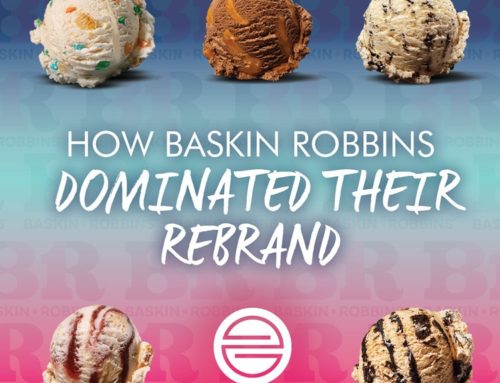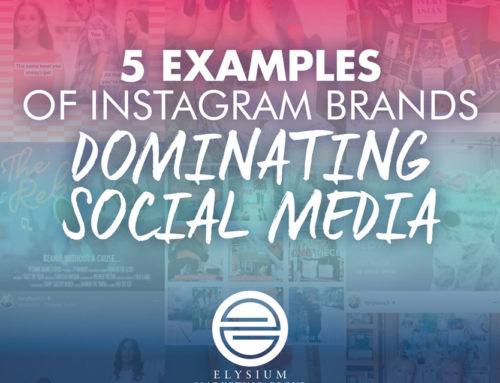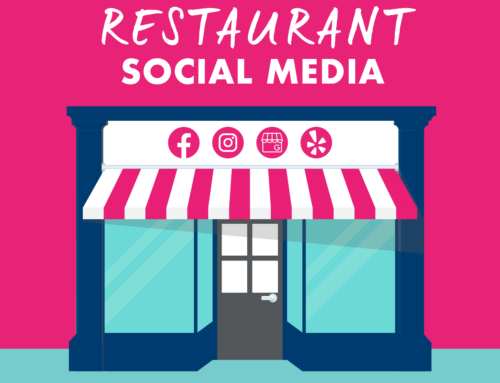|
Getting your Trinity Audio player ready...
|
We get asked a lot of questions from our clients, but one of the most common is “What social media platform should my business be utilizing?” This is a loaded question and our answer varies depending on the specific client. To give a broad understanding of which platform is necessary for your company, we’ve created a list of quick questions to ask yourself before adding unnecessary stress and work to your life!
7 Questions to Think About Before You Start:
-
Are you B2B or B2C? Majority of the time, B2B services do not need to have a presence on platforms like Instagram or Pinterest. Conversely, B2C businesses will find less luck on platforms such as LinkedIn. There are exceptions, but really think about what your offerings are and how they can be displayed to users.
-
Who is your desired audience? Each social platform hosts a variety of demographics. Understanding what type of user is active on each platform will dictate which platforms you should be using.
-
Are you selling a visual medium? If you aren’t, then there’s a possibility that platforms like Instagram and Pinterest aren’t for you since they’re more visually focused.
-
What type of content is your business planning on posting? The type of content you have strongly dictates which platform you should be using. If what you’re sharing is predominantly visual, consider Instagram or Pinterest. There is one caveat, all posts should include visuals because it’s just the nature of the post. If it’s something more technical, focus on LinkedIn or Facebook.
-
What social media platforms are other businesses in the industry using and how are they using it? Find out what platforms others in your field are using to get an idea of what could work well for your own business.
-
What do you hope to achieve by using social media? If sales are your focus, you need to think about consumer behavior and which platforms will best show your products or services or help you grow leads. If you want to amass a following, then consider what content will help users connect with your brand.
-
Are you prepared to spend a lot of time or money? Growing your social media either takes a lot of time, money, or both. If you don’t think you’ll have the time to invest or the financial capabilities, then you might want to pass on social media or pass those responsibilities off to someone who can do the dirty work for you.
These general questions should help you gauge your target market and determine which social platforms are best suited to your industry. We’ve broken out the most common social media platforms below to give you a more in-depth look at which one is right for your business.
Instagram:
The algorithm that Instagram currently has in place shows the most relevant content to the most people. For your content to do well, it needs to be something that users want to see. If you’re unsure about whether or not this platform would work well for your business, ask yourself these questions:
-
Does your content lend itself to engaging visuals? People want to see pictures of other people, behind the scenes pictures, pets, food, etc. If you are a dentist office or a law firm, you probably don’t need Instagram. If you really want to be a part of a visual platform, then keep things fun!
-
Will you have enough content to create a good rhythm? Posting once a week isn’t going to do you any good on this platform, and it isn’t going to help you gain a healthy following. It’s important to post at least 3 times a week to really see success.
-
Do you have the time to invest in increasing your follow to follower ratio? This is important because a good strategy takes time. If you don’t think you have the time, but still think Instagram is an important means for your business, that’s where we can come in and help.
-
Will you have the time to stay engaged with your followers? Everyone on social media wants quick responses and answers. If you have a platform for your brand, but never respond to requests or questions, you’re creating a bad user experience.
Facebook:
The most recent of Facebook’s ever-changing algorithms focuses on meaningful interactions between users. Meaning that conversations are now vital to having a successful Facebook presence. Therefore, your content needs to be something that will spark interest. When thinking about building out this platform for your business, ask these questions:
-
Are you planning on solely advertising, or are you planning on building & maintaining your presence? Users don’t want to see a sales pitch every time they see something from your page. You need to include content that allows you to build out your brand – show users what your business is all about.
-
Will you be able to build relationships with users? People want to know that your company is invested in its customers. If you can take the time to interact with them and get to know their wants and needs, you’ll be much better off.
-
Do you have the time to turn leads into loyal followers? Gaining followers and turning them into loyal brand advocates is much easier said than done. You can’t just invite people to like your page and expect them to do so and promote your product/services. This takes time and a decent amount of interaction, so if this is something that you don’t think will work well, then it might be best to skip it.
-
Will you have the time to engage with users? Interacting with your followers can take a lot of time. People want to know that you’re there to answer questions or requests. If you don’t think that this is something that your business can commit to, it might be best to pass on this option or hire someone to handle engagement.
Twitter:
Twitter displays content by timeliness and relevance of the post. This way, users are able to see what is most important to them in a timely fashion. This platform is a great way to stay up-to-date with the most current news. Twitter can be a very useful platform, but ask yourself these questions to ensure this tool is right for your business:
-
Do you have enough content to tweet regularly, and potentially several times throughout the day? This is a platform that requires a lot of content to be posted multiple times throughout the day. To do well, what is posted needs to be relevant to your followers, otherwise it will get left behind in the digital black hole.
-
Will you be able to interact with users on a consistent basis? If a user reaches out in some way, it’s important to get back to them quickly. If your business is unable to do this, then you’re not creating a good user experience.
-
Do you have both visual and written content? If there’s too much copy, users might start to pass by posts.It’s good to break up content with a visual component. Gifs also tend to perform well on this platform!
-
Will you incorporate hashtags and trending topics into your content? The use of hashtags on Twitter is very important. It helps show users what’s trending and if you’re not using them correctly, then you might be getting your content to the right people.
LinkedIn:
LinkedIn bases their feed off of engagement and the strength of connections between users so that the strongest business content is showcased. This is a true business platform, so you need to make sure that what you’re sharing is of interest to others in your field.
-
Are you trying to increase your number of leads? This can be a great place to find and grow leads! However, users only want to hear from people that could lead to something promising, so you can’t just send out invites and notes to just anyone. It takes time to find the right people to reach out to.
-
Is your focus on B2B interactions? This platform is much less focused on B2C interaction, so if this is your goal then I would suggest utilizing a different social tool.
-
Is your content engaging enough for people to interact? LinkedIn hosts a group of educated individuals who are trying to discover more about their field and the people within it. The content you post needs to be interesting enough for users to want to engage.
Pinterest:
This platform is a little different than the rest in terms of its algorithm. It bases what’s shown off of previous user interaction, so what people see will almost always be based on what they have searched for previously. This platform is a bit tricky, so be sure to ask yourself the following questions before you sign up.
-
Do you have visually engaging content? Pinterest is a visual platform. To do well, you need to have dynamic and engaging images. Otherwise, users will scroll right by without a thought.
-
Would visuals help promote your products or services? If your offerings can’t really be explained in a visual manner, then chances are you don’t need to be on Pinterest.
-
Do you have time to post multiple pieces of content throughout the day? Pinterest is unlike Instagram in the sense that users expect you to post multiple pieces throughout the day. If you have minimal imagery, then this platform is probably not for you.
Social media can be a very confusing area for many business owners. If these strategies seem daunting or confusing, give Elysium Marketing Group a call! We can help you determine which platform is best and what strategies to use to make sure your company is getting the most out of its social media. We can help with a wide range of services, whether it’s a consultation or the creation of a full-fledged social media campaign and implementation. And remember – this is fun stuff! Regardless of the platform, have fun with your content!




